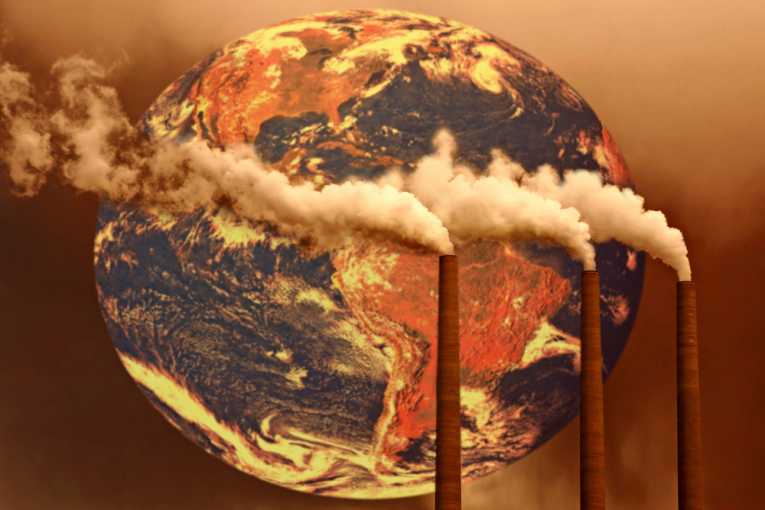Concentrating on cutting methane and soot a quicker and easier way to curb global warming
Scientists say there may a quick, cheap and easy way to curb global warming. Rather than reducing carbon dioxide, the focus should shift to cutting soot and methane, according to a new study by an international team.
Lowering the use of the pollutants in industry and farming could lower worldwide warming by one degree Fahrenheit within 40 years or so. It would also signifinantly cut air pollution deaths and increase crop yields.
Lead author Drew Shindell, and researcher at the NASA Goddard Institute for Space Studies (GISS) and Columbia University's Earth Institute, says "Ultimately, we have to deal with CO2, but in the short term, dealing with these pollutants is more do-able, and it brings fast benefits.
"We have identified practical steps we can take with existing technologies. Protecting public health and food supplies may take precedence over avoiding climate change in most countries, but knowing that these measures also mitigate climate change may help motivate policies to put them into practice."
The study, Simultaneously Mitigating Near-Term Climate Change and Improving Human Health and Food Security, published in the journal, Science, was written by experts from North America, Europe, Africa, Asia and the Middle East. It expands on a previous report from the United Nations Environmental Programme and the World Meteorological Organization.
Carbon dioxide increases global warming but it requires big changes in politics, economics and technology to reduce levels and CO2 stays in the atmosphere for centuries.
There are quick and easy ways to combat methane and soot, says the report. Methane is a more potent greenhouse gas than carbon dioxide and can react with gases to create ground-level ozone, which is a damaging pollutant.
Soot takes in solar radiation and so warms the air and land. It also exacerbates heart and lung problems.
The study examined around 400 ways of controlling pollution that could also reduce global warming. Computer modeling was then used to test the 14 that would have the quickest effects - all of which suggested cutting methane or soot levels.
There are a number of methods that might reduce methane:
· capturing the gas that escapes from coal mines and oil and gas-producing facilities
· cutting leaks from long-distance pipelines
· reducing landfill emissions
· modernising wastewater treatment plants
· frequently draining rice paddies
· lessening emissions from farm manure

Rice Paddy via Shutterstock
To reduce soot and black carbon, additional filters could be used on diesel vehicles; the biggest-polluting vehicles could be scrapped; old home cookers could be replaced by cleaner-burning models; more efficient brick kilns, boilers and coke ovens could be built; and burning farmland in the tropics could be prevented.
If all the advice was acted upon, global warming could be cut by 0.5 degree Centigrade (0.9 Fahrenheit) by 2050, says the researchers.
Up to 4.7 million premature deaths annually from outdoor air pollution could be prevented and crop yield increased by up to 135 million metric tons by 2030 and beyond, say the scientists.
Areas with large amounts of ice and snow, such as the Himalayas and the Arctic would benefit most, as soot increases melting. There, estimated warming levels could be cut by 66% within the next 30 years, the study suggests.
The greatest reduction in early death would be in South Asia and warm Middle East countries, such as Iran and Jordan, would benefit from better farming yields.
Some areas of Asia and Africa would receive more favourable seasonal rainfall, thanks to the reduction in soot levels.
The computer modeling was created at GISS and the Max Planck Institute for Meteorology, based in Hamburg, Germany.
Achim Steiner, executive director of the Nairobi-based UN Environmental Programme, concludes, "The scientific case for fast action on these so-called 'short-lived climate forcers' has been steadily built over more than a decade, and this study provides further focused and compelling analysis of the likely benefits at the national and regional level."
Also assisting in the research was the Joint Research Centre of the European Commission, Stockholm Environment Institute, Harvard School of Public Health, Scripps Institute of Oceanography, the Asian Institute of Technology in Bangkok and the U.S. Environmental Protection Agency.










